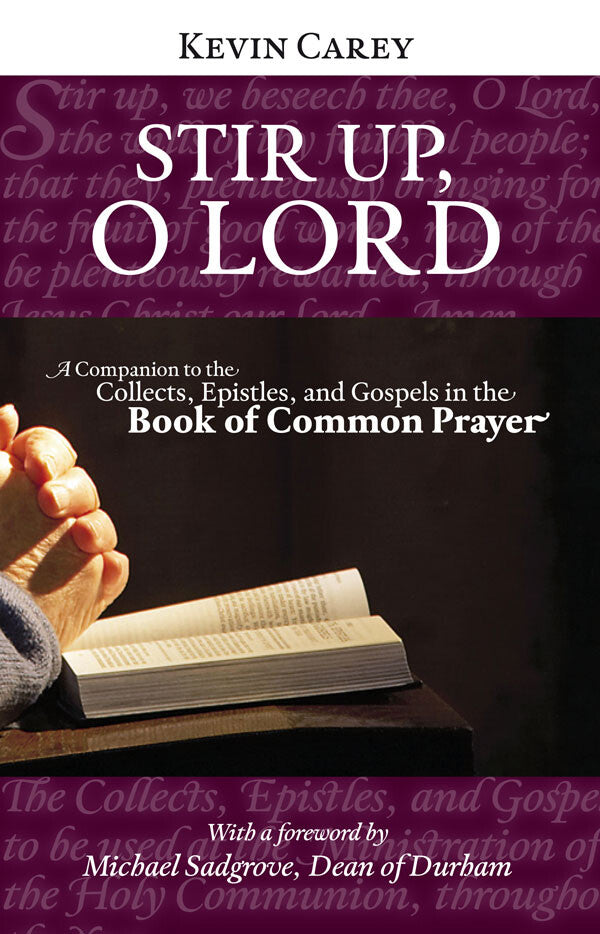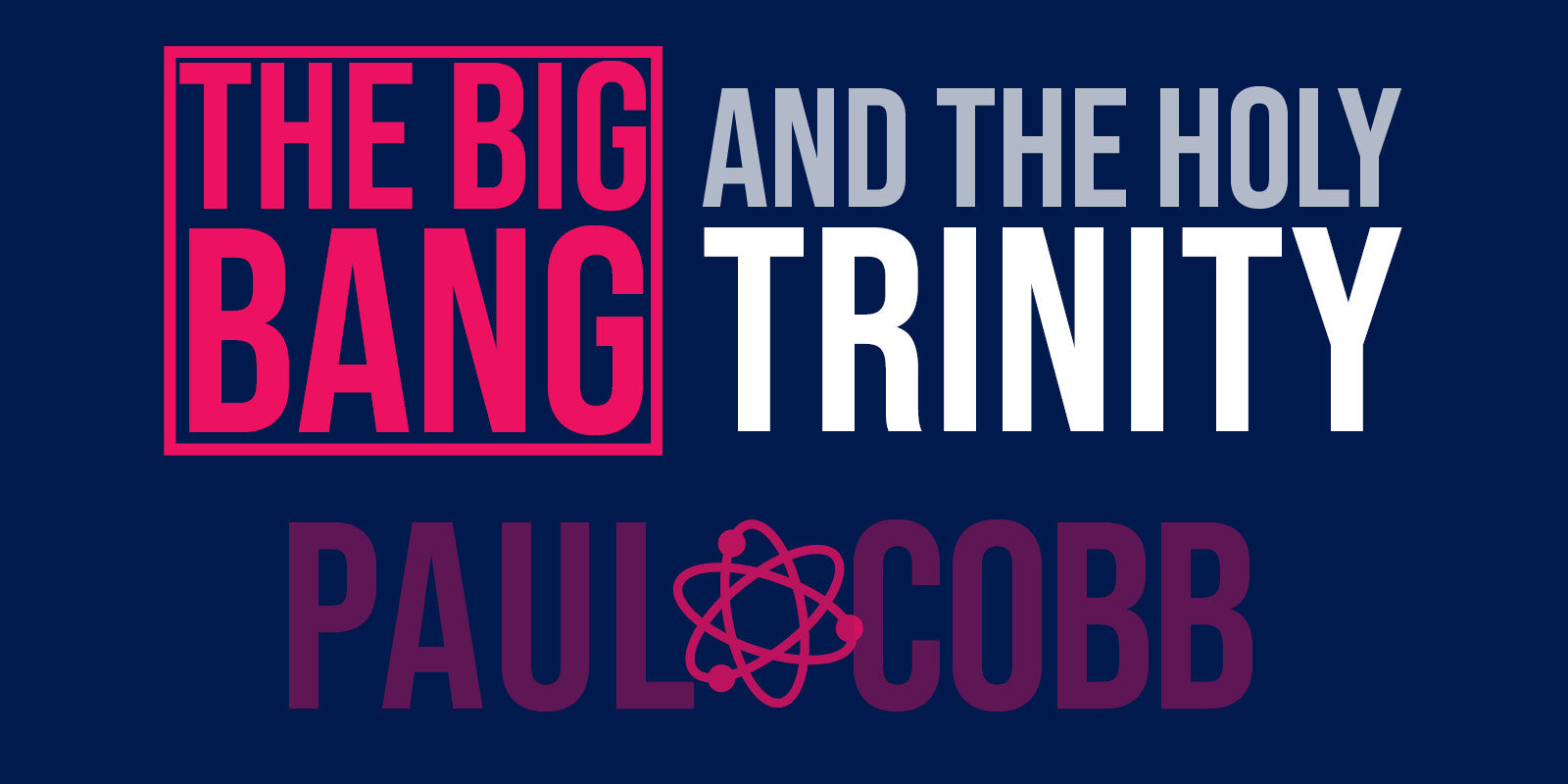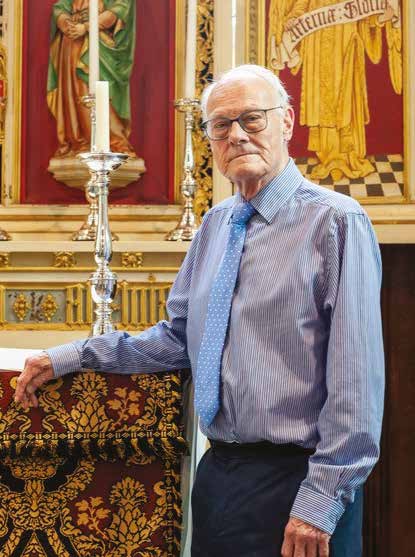Sacristy Press is delighted to announce the release of Stir Up, O Lord: A Companion to the Collects, Eplistles, and Gospels in the Book of Common Prayer. Buy it now »
In the book’s foreword, Michael Sadgrove, Dean of Durham, comments:
Carey's exposition of the biblical readings and Prayer Book collects is careful, thorough, and informed by a well-populated theological and cultural hinterland . . . I wholeheartedly commend it.
Stir Up, O Lord is available as a paperback for £9.99, and for various e-book readers for just £4.99. Buy it now »
The author, Kevin Carey, is the Chairman of RNIB, the UK’s leading blindness charity, and a Reader in his parish church. He has been a Member of General Synod, and is a chorister, published poet, and classical music critic.
Stir Up, O Lord draws from the material in that snappily-entitled section of the BCP, “The Collects, Epistles, and Gospels, to be used at the Ministration of the Holy Communion, throughout the Year”. Each high day and holy day receives separate treatment, enticing the reader to contemplate the historical context for the collect’s composition and the selection of the readings, and relating these to our present situation.
Accompanying each section are five Thoughts for Reflection, providing potential starting points for sermon writing, discussion, or personal reflection. (In the paperback edition these can be found at the back; in the e-book edition they are located with each commentary.)
We asked Kevin to tell us a little more about the book and his relationship with the BCP.
What inspired you to write Stir Up, O Lord?
I was inspired to write Stir Up, O Lord because the very people that are the most ardent admirers of the BCP were also confining it to dusty shelves by refusing to consider its worship in a contemporary context. It isn't a work of literature, it's the core document of the Church of England, and as the C of E is a church not a literary society, then its worship needs to be vigorous. The book is an attempt to provide some vigorous commentary on scriptural passages; you can be a liturgical conservative and a social radical! I am!
To what extent do you feel that the BCP is unjustly maligned or misconstrued by members of the modern church?
The BCP suffers from a surfeit of shallow admiration. Most of the people who say they really admire it simply mean they prefer Matins and Evensong (choral if possible) to Eucharist, but when you dig a bit deeper you find this is largely on aesthetic not theological grounds. They rarely wander outside the narrow confines of these two offices and an occasional “Eight O’clock”.
Such admiration gives the BCP very short shrift indeed. What this also means is that the BCP has become a shibboleth issue or a piece of shorthand so that it is associated with a particular form of conservatism which isn't helped by its advocates being so narrow in their interests.
Why should we pay more attention to historical context in our daily worship?
While I am not asking people to become deeply involved in historical issues in respect of worship, there is a general principle at stake here and that is that people who take their church seriously should study all aspects of its mission and history. Too many people carry primary school religion into their adulthood whereas a similar degree of stunted development would not be acceptable in their vocations and careers.
On the specific historical point, I think people should understand that what preoccupied Cranmer doesn't necessarily preoccupy us; and contemporary concerns are reflected consciously in the Collects and perhaps subconsciously in the choice of readings. The clearest dichotomy is between the BCP’s concern with ecclesiology and our concern with social justice. Without study, some of the Collects are simply baffling or otiose.
How would it enhance churchgoers’ devotions if they had a better understanding of the BCP and Collects?
Churchgoers might not necessarily feel more devout if they better understood the Collects, but worship leaders, who understand the Collects, might be moved to choose superior material.
To what extent was this book the product of your work as a lay minister?
Like all of my books, this one arose out of internal need. Naturally some of my sermon material was put into it, but I have not preached on most of the Sundays and Festivals. I just wanted to write a book of scriptural commentary that stretched me. I also noticed a gap in the market for a BCP-related work. There is plenty of stuff for Common Worship users, led by such major figures as Jane Williams.
Are there other elements of worship that deserve a similar treatment? Of what else ought we to have a greater knowledge?
One area which really needs a simplified but comprehensive treatment is liturgy. We do all kinds of things which are both obscure, though significant, and which are, sadly, taken for granted in regular worship. There was pretty near civil war in the Church of England more than once over the use of candles, the positioning of the Communion Table, the use of priestly vestments, and the disposal of post-Communion bread and wine.
One final comment which extends something I mentioned earlier: I once met an engineer in the pub who asked me why I spent so much time on theology; and I said to him that they wouldn't let him design suspension bridges if he only had primary school Meccano skills to offer.










